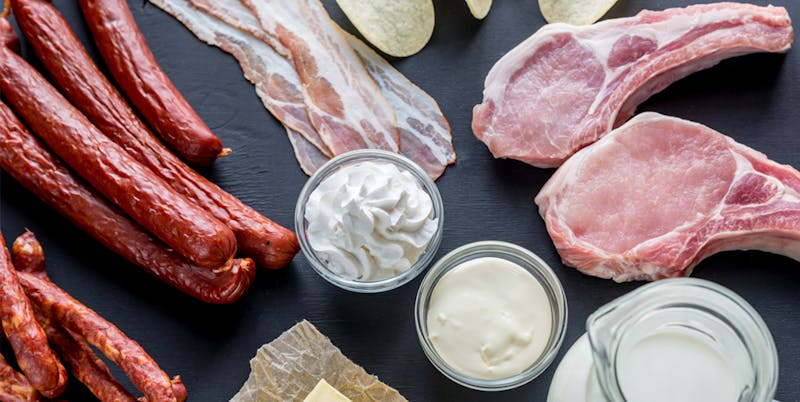
Glaucoma is a serious eye disease with serious ramifications if not treated in a timely manner. In fact, it’s one of the leading causes of blindness and vision loss in people over the age of 60 years old, though it can occur in anyone -- no matter what their age is.
It happens when excess fluid builds up in the front of the eye, either due to the eye not draining properly (open-angle glaucoma) or the iris blocking the drainage angle (closed-angle glaucoma). The excess fluid increases the eye pressure and causes optic nerve damage when not treated.
Treating Patients With Glaucoma
While the damage caused by glaucoma is irreversible, regular eye exams with a trusted, experienced, and licensed eye doctor or ophthalmologist -- such as Dr. Omar Shakir -- is vital to detecting glaucoma early. And much like most eye diseases, early detection is essential to reducing the risk of glaucoma worsening at a rapid rate over time.
Once detected, there are a variety of treatment options for glaucoma patients. Prescription eye drops, laser treatment, medication, and surgery can help you manage the symptoms, but there are also several lifestyle choices you’ll want to make -- including some changes to your diet.
So, What Foods Should You Avoid If You Have Glaucoma?
Patients with glaucoma are going to be asked to make several lifestyle choices. A majority of these choices will be specific to each individual, especially since everyone’s body (and eyes) are different. With that said, there are also a variety of things you should avoid no matter what.
Let’s take a look at some of the foods every glaucoma patient should consider avoiding immediately. It’ll generally help in an indirect way, but it can help keep your optic nerve healthy and eye pressure to a minimum.
Caffeine
Some studies suggest caffeine increases intraocular pressure, cholesterol levels, and blood pressure. You’ll want to limit the amount of (or replace) coffee, green tea, dark chocolate, soda, and energy drinks in your diet.
Saturated Fats
A diet with a lot of saturated fats will lead to weight gain and an increase in body mass index. This can not only increase intraocular pressure, but also cholesterol levels. That means limit fatty beef, lamb, pork, butter, cheese, milk, and other dairy products.
Trans Fats
In addition to saturated fats, you should also limit trans fats because they harm blood vessels and raise cholesterol levels. That means you’ll need to avoid fried foods, french fries, potato chips, baked goods, and frozen pizza.
Salt
Although it’ll indirectly help, limiting the amount of salt you eat daily can help limit your blood pressure, which can also help limit eye pressure. A little salt in moderation is okay, but don’t over-do yourself.
In addition to avoiding caffeine, saturated fats, trans fatty acids, and salt in your daily diet, glaucoma patients should also consider avoiding any foods they’re allergic to. Some of these lifestyle choices might be difficult to make, but they’re more than worth it when maintaining eye health.
Activities You Should Consider Avoiding
Believe it or not, food isn’t the only thing you’ll want to avoid when trying to reduce your risk of glaucoma worsening. There are several activities out there that can be harmful to your eye health by increasing the amount of pressure in your eye, both in the short-term and long-term.
Let’s take a look at some of activities you might want to think twice about:
Weight-Lifting
Exercising is extremely important, but you need to be mindful of what exercises you’re doing. For example, try to avoid using heavy weights and avoid exercises that involve your head being upside down.
Scuba Diving
Studies don’t show any clear evidence between scuba diving and worsened glaucoma symptoms, but you should speak with Dr. Omar Shakir before planning any scuba trips.
Bungee Jumping
You should also check-in with Dr. Omar Shakir before planning any bungee jumping trips. The sudden change in eye pressure as you fall could have adverse effects on eye pressure.
Yoga
Much like avoiding exercises where your head is upside down, the same goes for any yoga poses that involve handstands or awkward positions. Speak with Dr. Omar Shakir, your trusted eye doctor, to see if there are any alternatives.
Instruments
Believe it or not, playing wind instruments has shown minor increases in eye pressure, which could be damaging to the optic nerve. Dr. Omar Shakir will be able to guide you in the right direction.
Keep in mind that studies are ongoing and many of the above activities don’t have any clear evidence suggesting any direct correlation between them and glaucoma. At the same time, it’s important you do everything in your power to put your eyes in a position to succeed long-term.
Are There Any Foods That Help Glaucoma Patients?
While there’s no clear evidence supporting certain foods as a treatment for patients with glaucoma, there are several foods that can give your eyes the nutrients they need to function properly. Of course, these changes to your diet will improve much more than just your eyes.
For starters, it’s important that everyone -- especially glaucoma patients -- eat a balanced and healthy diet daily. It’ll help keep your blood pressure in check, your blood flow healthy, and your cholesterol levels in good standing -- which can indirectly help limit your eye pressure.
Leafy greens, fruits and vegetables are all nutrient-rich foods that help lower oxidative stress with antioxidants and provide a wide range of vitamins and minerals. They’ll help with disease prevention, but they shouldn’t be viewed as a treatment option -- just an extra line of defense.
Call Your Ophthalmologist If Symptoms Worsen
To safely and effectively reduce your risk of glaucoma worsening over time, start scheduling regular eye exams with licensed ophthalmologist Dr. Omar Shakir today -- no matter what age you are! He can help monitor your eye health and ensure you follow the proper treatment plan for you.
Contact Coastal Eye Surgeons today for a comprehensive eye exam with the best ophthalmologist in your community. We can’t wait to help you find a long-term treatment plan to manage your glaucoma symptoms.
Check out our article on What Causes Cloudiness in the Eye After Cataract Surgery?

